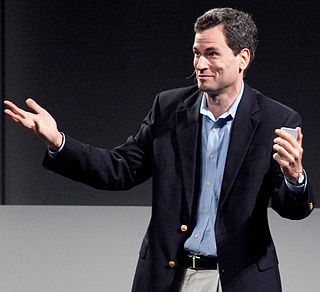A Quote by Walt Mossberg
Apple's iTunes program was once the envy of the world. A combined digital music store and player, it could also sync your iPod. And it worked on both Mac and Windows. It was reasonably fast and very sure-footed.
Related Quotes
I moved to San Francisco to work at Apple's Cupertino office in the summer of 2006, then stayed on remotely in a part-time job back in Austin. It was an internship with iTunes. I helped them launch new features as well as new marketing programs. I also helped program the iTunes Store every week, working on which artists and albums got featured.
Right after the keynote in which Steve Jobs introduced the iPod Shuffle, I went backstage with one question in mind: What makes an iPod an iPod? By then - January 11, 2005 - I had staked my own claim to iPod expertise, having written a 'Newsweek' cover story about Apple's transformational music player, and I was writing a book on it.
The iPod is a proprietary integrated product, although that is becoming quite modular. You can download your music from Amazon as easily as you can from iTunes. You also see modularity organized around the Android operating system that is growing much faster than the iPhone. So I worry that modularity will do its work on Apple.
We had the hardware expertise, the industrial design expertise and the software expertise, including iTunes. One of the biggest insights we have was that we decided not to try to manage your music library on the iPod, but to manage it in iTunes. Other companies tried to do everything on the device itself and made it so complicated that it was useless.































